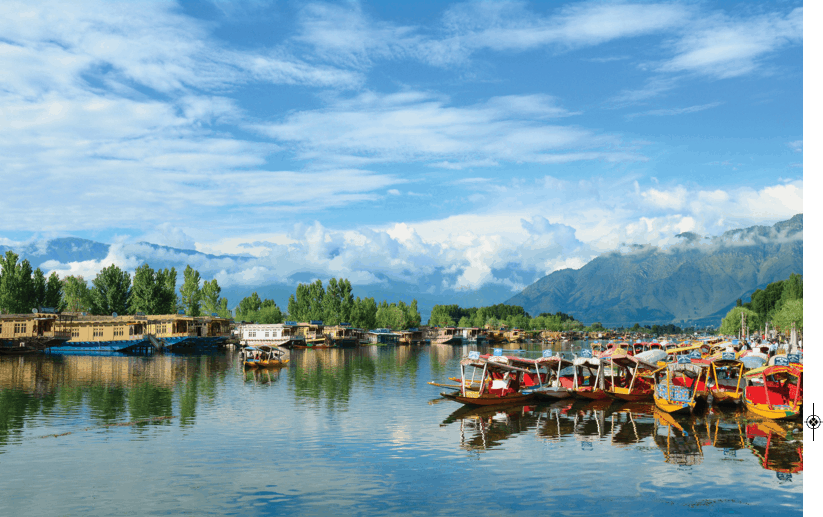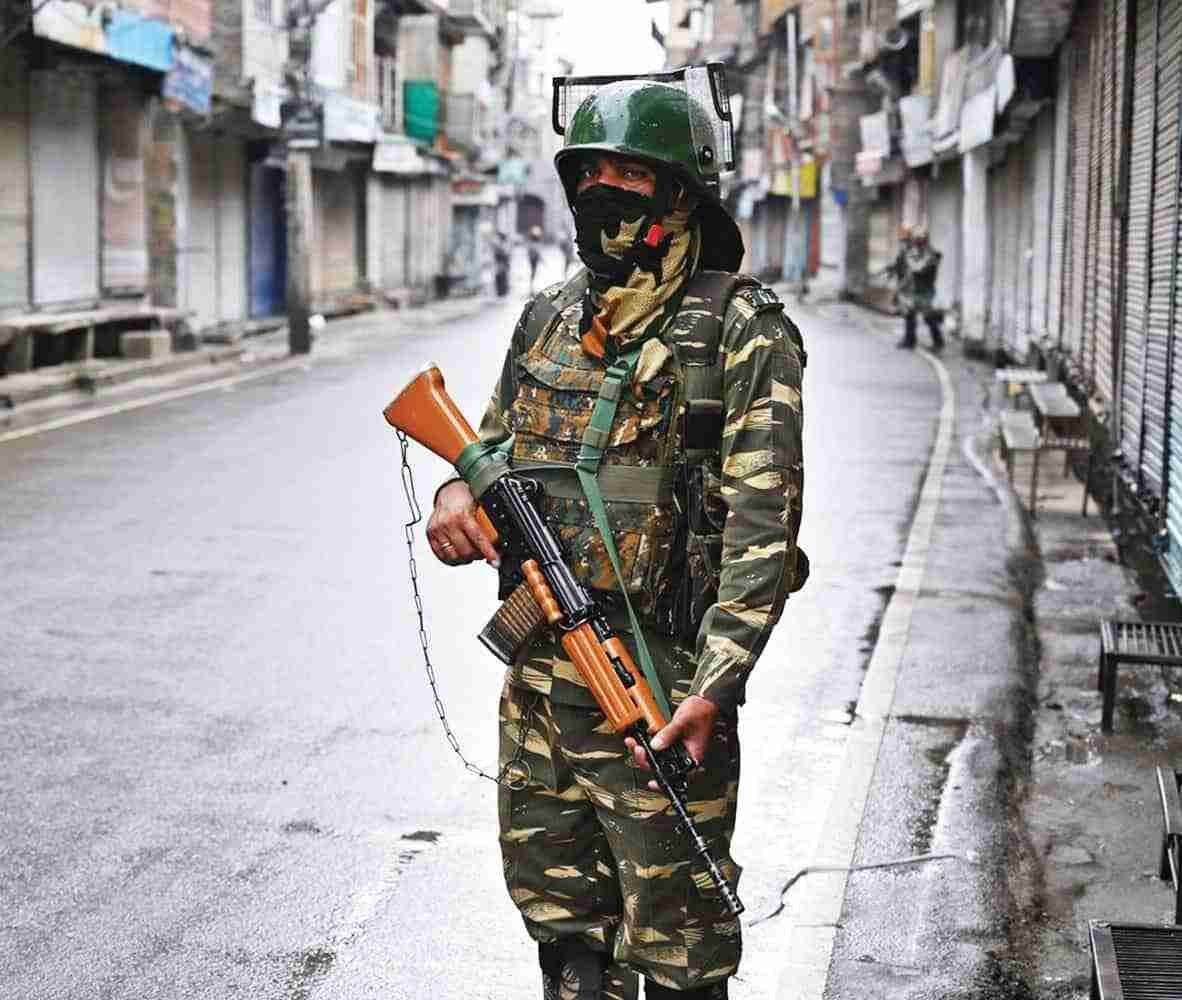Article 370 and 35A having been consigned to the flames and become part of history, it is time to rejoice and understand the dynamics of new political and security dimensions of the historic decision taken by the present NDA government under the visionary statesmanship of PM Modi and astute leadership of Home Minister Amit Shah. The ill effects of these two articles, which were the root cause of blatant regional discrimination and Kashmiri domination in the state need not be repeated since enough has already been written on the subject and the matter was adequately highlighted by various speakers in both Houses of Parliament. But being a victim of the said ill-effects, one can now hold one’s head high and claim to be an equal among equals.It would also put an end to the money-making industry being run by a privileged few by looting the generous funds received from the Centre, thus ensuring development and empowerment of the ordinary citizens.
With the passing of J&K Reorganisation Bill-2019 by the Rajya Sabha, a major hurdle was crossed by the deft management of the opposition parties by the think tank of the BJP. The Bill expectedly sailed through the Lok Sabha on 6 August 2019, with the majority enjoyed by the government in the lower house. With the President according his assent, the Bill has become an Act. With all this, the unified entity of Jammu & Kashmir state as created by the Dogra ruler Maharaja Gulab Singh has also become a part of history. The state has been bifurcated into two, both of which are as of now, Union Territories. The erstwhile Ladakh Division of the state has been made a Union Territory (UT) without a legislature. The Jammu and Kashmir Divisions have also been made into one Union Territory, the UT of Jammu Kashmir, with legislative powers. While there are different models of UTs in India, UT of J&K will adopt Puducherry Model under Article 239A of the Constitution of India.
The historical blunder of having a separate Constitution of Jammu & Kashmir which promoted separatism rather than ensuring state’s full integration with the rest of India has been undone with the scrapping of the provisions of Article 370. The Constitution of India will be fully applicable without any exceptions in both the UT of Jammu Kashmir and in the UT of Ladakh. The separate state constitution will cease to be operative and with that the separate flag enjoying the same status as the National Flag. Henceforth, only the National Flag will fly atop all government buildings and the government offices. Any disrespect to the national flag and national anthem would be a cognizable offence.
Permanent Resident Certificate (PRC) or the State Subject, which used to be the most prized possession of the state residents — and most difficult to procure if one happened to be from the minority communities—will now become an ordinary document like many other documents. This is indeed a big relief to the common man and particularly those who were denied the privileges enjoyed by the permanent residents of the state. The gender discrimination which was perpetuated by the provisions of Article 35A is also now consigned to the dustbin of history. The repeal of 35A and of the provisions of Article 370 will also go a long way in enabling the holistic development of the state and will in times to come enhance its tourist potential to the full.
The Ranbir Penal Code will form part of the archives, though on a personal note, my emotional attachment with it will remain forever, as I am a direct descendant of the legal luminary who drafted it. Most importantly, the symbols of being different and special will cease to exist and from all corners of the country, the people will have the same law, the same Constitution and the same flag. What an exhilarating feeling!
To all those who are crying foul and trying to pent up communal passions in order to ensure the continuation of their hegemony, it would be suffice to say that the days of their feudal attitude and open loot are over. It would be easier on them if they come to terms with the new realities of the ground situation. There are also those who are selling a new narrative that India’s credibility as a secular state, where Muslims are safe is at stake. This is patently false. The abrogation of Article 35A and of the provisions of Article 370 will only strengthen the secular bond of the nation, also making the two new UTs truly secular now.
With respect to the Muslim majority nature of the erstwhile state of J&K, it must be noted that a larger population of the Muslims reside in the rest of the country and their population has grown from 9.8% to 14.23% (as per census 2011) with almost 24% decadal growth rate in the last two censuses. In India, Muslims form the second largest religious population and every citizen is safe. This stands in stark contrast to many Islamic countries, where disharmony and discord prevail, unlike in India where different Muslim sects—Sunnis, Shias, Ahmaddiya, Bohras etc—all live in peace and harmony and co-exist together. No Muslim country can make a similar statement.
What are the implications of reorganisation? UT of J&K will have a legislative assembly and no legislative council. It would have a council of ministers with 10 ministers (not exceeding 10% of total legislators) headed by a Chief Minister. Lt Governor will replace the Governor. The UT of Ladakh will continue to be governed by the two autonomous hill councils headed by the Lt Governor (LG). There will be common High Court for both the UTs. J&K UT will continue with JK Public Service Commission, Ladakh UT will be served by Union Public Service Commission (UPSC). All major Central laws & Commissions will be applicable in both the UTs by deleting the term “excluding State of J&K” from the Acts governing them. Election Commission of India will henceforth conduct all the elections in J&K UT instead of the Chief Election Officer (CEO). All Indian citizens will be eligible to register themselves as voters as per the existing electoral laws as applicable in rest of the country. Local land laws have been retained.

The provision of Article 239A applicable to Puducherry will be applicable to new J&K UT. The legislative assembly will enjoy the power to legislate on all matters in the State List except “police” and “public order” and all matters in the Concurrent List. The J&K Police will be under the control of Home Ministry, as in the case of Delhi. However, in Puducherry, law and order is a state subject. This is the main reason that is bothering the Kashmiri leaders who used to have full control over the police and used it to fulfil their agenda including soft approach towards separatists and terror sympathisers including the Over Ground Workers (OGWs). J&K Bank will be under the full control of the Central Government and RBI. This bank, which acted as a “Kamdhenu” for the local parties will no more be at their beck and call thus drying up a source of personal financing and conduit to terror financing. It is thus no surprise that many of these leaders are mourning the demise of the so- called special status. Centre will now have the power to also declare financial emergency under Article 360 in the two UTs.
All the bills passed by the Assembly will be sent to the LG for his consent. LG can give his assent, withhold it or send the bill for considerationof the President. However, the Parliament will retain the primacy in that if there is any inconsistency, Law by Parliament will prevail over any law passed by the new Assembly.
The new assembly will have a term of 5 years like the rest of the country. It would have 107 members with 24 seats frozen for POJK. LG will have powers to nominate two female members as existing. The four existing members to Rajya Sabha will continue to be the sitting members from the current J&K. As far as Lok Sabha is concerned, J&K UT will have five members while one will represent the Ladakh UT. Union Government has also proposed fresh delimitation of J&K Assembly.
As far as Parliament is concerned, fresh delimitation is not permitted till the next census after 2026. An increase of 7 seats, 114 from 107 has been proposed in the state legislature and the delimitation will be based on 2011 census. The 2011 census is fraught with irregularities with the entire floating tribal population shown in Kashmir as well as a population of 2 lakh Kashmiri Pandits. Nonetheless, political reservation for the tribal is a welcome step.
With this reorganisation, the people would expect good governance, of which they were deprived by the successive elected governments in the past, and also an end to rampant corruption. The ongoing war against corruption unleashed by the outgoing governor must not only continue but be put on fast track. With direct monitoring by the Central government, the scope and pace of development will undergo a metamorphic change and external investments will generate avenues for employment. Hopefully, the region will get better medical and health facilities and the need for its citizens to rush to neighbouring states will cease. It is also hoped that state of art super specialty hospitals will be functional from here as well.
As far as the security environment is concerned, the new system will deal with anti-national, separatist and soft–separatists forces with an iron hand with policy of appeasement becoming a thing of the past. Pakistan sponsored terror will continue to be a cause of worry. But with power being withdrawn from those who had vested interest in terrorism to fester and flourish, it would not be easy for Pakistan to continue with its evil intent for very long. When lasting peace returns and situation becomes normal, there is a hope that the UT may once again get back the status of a state.

The move has evoked little response from governments across the world except Pakistan. The response of USA and other P5 powers has been very positive. The noise being made by Pakistan is on expected lines and matters little. Pakistan is worried about the next move of the Modi government and India’s claims on POJK. Pakistan’s criticism of bifurcation of J&K holds no water because of what it did in 1970 wherein it carved out a separate territory of “Northern Areas” from its occupied territory of J&K and made it a federally administered area. In 2009, it was renamed as Gilgit-Baltistan and plans are afoot to make it a province of Pakistan. Even Organisation of Islamic Countries (OIC) has maintained silence rather than supporting Pakistan. China, which lays claim to parts of Ladakh has also maintained a studied silence.
The surgery has been done by the master surgeons. It was done with precision and perfection expected from master surgeons. Recovery and recuperation takes time after a major surgery. Hope this period is not unduly long and the promised elections are held. “Acche Din” (good days) have arrived for the vast majority and those destined to sulk will also one day realise their folly and join the march towards modernisation, development and peace.
Brig Anil Gupta is a Jammu based political commentator, columnist, security and strategic analyst. He can be contacted at anil5457@gmail.com)

